- Home
- Jude Deveraux
Remembrance Page 4
Remembrance Read online
Page 4
“Which life do you want to know about?” she asked.
I sent her my thoughts on that remark and managed to make her smile.
“You have written before, in France.”
“Who? What was her name?” Visions of a biography (autobiography?) danced through my head. Also, the horrors of trying to learn to read French.
Nora waved her hand in dismissal. “I don’t know. She doesn’t matter. Your karma lies with the man.”
Karma—I thought but didn’t ask Nora to explain this word, but later I looked it up. Karma is: You get what you deserve. The theory is that if you hurt people in one life you’ll be hurt in the next one. I think this is also a law of physics—for every action there is an equal reaction. Also in the Bible: Whatsoever ye sow, so shall ye reap. In fact, I think the law of karma just might be everywhere in lots of different forms.
Nora was going on and telling me more about my lives: one in Vienna (very unhappy), several in England, a bad one in Italy.
She said, “You have a friend now…”
I was still smarting over her remarks yesterday about my life of no love so I rattled off about twenty names of people I considered my friends.
Nora gave me a look of disgust, letting me know that I couldn’t bamboozle her. “You have only two real friends.”
“Yes,” I answered, trying not to blush in embarrassment at being caught being a snob. Daria, young, gorgeous legs that started at her earlobes, men drooling over her. And Milly, an overweight romance writer I’d met years ago, not pretty, not sexy, unmarried, only thirty-five but looking fifty, with a heart as big as the earth.
“Yes,” I said, “I have two friends: Daria and Milly.”
“You have known them many times. They are your true friends and they wish you only happiness.”
“I take it this isn’t usually the case.”
A look of profound disgust crossed Nora’s face, letting me know of the awful things she usually saw in people’s heads. I can hardly stand to look inside my own head, much less anyone else’s. What filth must lurk inside a child molester’s mind?
“What were these women to me in the past?” I asked.
“The young one designed something for you—I don’t know what—and the older one was…I believe she was your mother yet not your mother.”
Nice, concise, pinpoint information telling me absolutely nothing, I thought. I tried to encourage her. “Wasn’t I ever a gunslinger’s girl? A real femme fatale or some sultry singer in a bar? Something…I don’t know, something very different from what I am now.”
“No,” Nora said, then proceeded to tell me about the “rules” of past lives.
Pardon me, I hadn’t reconciled myself to the idea of there being past lives, much less to the idea of “rules.”
Nora explained to me about character. Character—or as we often call it, personality—doesn’t change. What you are now is what you’ve always been. At least in terms of character.
If in this life you’re a stay-at-home, then you were a stay-at-home in the past. Mousy little women were not flamboyant seductresses in a past life, no matter what charlatans may try to make you believe. She also said that talents you have in this life may have been developed in another life (in that case I have never played the piano). Countries you want to visit may be places where you had a happy life. Your style of dress, the furniture you like, pretty much your taste in everything is influenced by your past lives.
She went on to tell me that what a person likes to read and, in my case, write, are often based on past lives.
I interrupted at this. “Is this why I write books set in the Middle Ages with such ease? And why I hate pirate books and books about Vikings? And why I love just about everything Edwardian?”
Nora’s answer was, “Probably.” She’d have to “see” more about where I had and had not been before she could answer for sure. Personally, I wasn’t sure a person could be “sure” about something that may not exist.
She went on to say that tastes and sounds and smells were very strong senses and they remained with you throughout time.
“For instance,” Nora said, “there are certain smells that make you ill. People’s bad breath, I believe.”
She really had been snooping! But she was right and I’d never told anyone this in my life. When I am confined with a person with very bad breath I become quite ill.
“And there is an animal you like.”
“Dogs?” I do like dogs but I don’t have one.
“No,” Nora said, concentrating, her eyes boring into mine. “An animal from the jungle.”
“I had a boyfriend once who in Chinese astrology was a tiger,” I said helpfully.
She didn’t smile but then looked up in recognition. “You eat off the animal.”
I did some quick—and imaginative—thinking at that one. Then I smiled. “Monkeys!”
“Yes,” she answered, smiling back at me.
I’ve never figured out why I love monkeys. I have monkey candlestick holders, dishes, lamps, potpourri holders, et cetera, all over my apartment. It’s not enough that people say, “Wow! You sure like monkeys, don’t you?” when they walk into my apartment, but a few people know and give me gifts now and then, thereby making my collection grow.
“What else?” I asked eagerly. “Where did I live? What did I do?” I think I forgot about whether this was real or not. My hands were dying to get hold of a research book. I’d write an in-depth biography of someone, something I’d always wanted to do but I’d have greater insight because the character would be me. I guess. Sort of.
She frowned in thought. “What is the name of that jeweler you like so much?”
“Cartier? Tiffany? Harry Winston?” I could have added to that list all day.
“No,” she said, annoyed. “The jeweler you really like.”
I really like Cartier, I thought, but decided to, for once, forgo the sarcasm as I tried to think if there was a special jeweler in my life. As far as I was concerned, all of them were special.
“Oh,” I said after a moment. “Fabergé.”
“Yes.” She didn’t say so but I could tell she was proud of me. It must be reassuring to someone like her to find that we mere mortals can sometimes use our one-dimensional brains to advantage. “If you will read about that jeweler you will recognize yourself.”
Another one of her why-the-sun-loves-the-moon statements. Personally, I’d prefer a name and date, but I could see that “Fabergé” was all I was going to get out of her.
We were out of time by then so I bid Nora good-bye and immediately caught a taxi downtown to the Strand. This place is billed as the largest used bookstore in the world, but it could also win the titles of dirtiest, rudest, and strangest check-out personnel. One day at the Strand I, as an amateur costume historian, became so fascinated with the rings in the nose, lip, and cheek of the young woman ringing up my books that she had to ask me four times for my charge card.
But whatever else the Strand is, it’s a great place to buy out-of-print books. I bought a copy of each book they had on Fabergé, grabbed a cab, went through ten minutes of explaining my address to the non-English-speaking driver (while the meter was running, of course) and got back to my apartment pronto.
For all that reviewers think romance novelists are worthless, one thing we learn to do is research. Heaven help us, we have to be good because our readers have memories that would make a computer data bank weep with envy. One screwup and they write you about it. I don’t just mean dates, I mean things like scissors. Readers will write you that you had your heroine using scissors before scissors were invented. You can’t have a hero say “Wait a minute” until after clocks were in common use. And food! Don’t make errors with tomatoes and potatoes or you’ll hear from them.
Of course these are the same women the reviewers and the general public think have the intelligence of carrots and the mental stability of Sybil.
Anyway, if there’s one thing I can do it’
s research. My eyes and fingers can flip through a book with a key word in mind and find just what I need in seconds flat.
Twenty minutes, after dumping my old/new, very dirty books on the living room rug, with the Jasmine song from Lakme surrounding me, I’d found her.
There were five women who were responsible for Fabergé’s success. Two were Russian. No, that wasn’t me. I’ve never felt any sense of recognition while plowing through War and Peace. I can’t even make it through the movie. One woman was American and very rich. I liked this idea but then I read that she was a great philanthropist, opened charity hospitals, did lots of good for others. Unfortunately, this is not me. I put all my money into securities and hold on to every penny.
One woman was the Princess of Wales, later Queen Alexandra. I’d already done too much research to believe she and I could have the same character. Alix was beautiful but not very bright and retaliated against her philandering husband by being late at every opportunity. Not my style.
The last name on the list sent a chill up my spine. Lady de Grey. Years ago I avidly watched the series on Masterpiece Theatre about Lillie Langtry, and all through it I was fascinated by her friend Lady de Grey. I even bought a few books on the Jersey Lil to try to find out more about this woman, but there was nothing more than a few sentences.
Just liking the name wasn’t enough to make me think I was the reincarnation of this woman. In the index of one of the Fabergé books I found another page with a reference to Lady de Grey.
Here I found a little story about how all the society ladies hounded Fabergé to make more and more articles for them, never allowing him to sleep or eat.
“But none of them was worse than Lady de Grey,” the author wrote. “She was an utterly charming and brilliant young woman, but when she set her mind to something nothing on earth could stop her. One evening when Lady de Grey entered the shop at dinnertime, Fabergé tried to escape out the back but her ladyship had a second sense about people and she caught him. Between her charm, her humor and her indomitable will, Fabergé knew he’d not be going home to dinner that night.”
That description was so close to home that reading it left me feeling a little queasy. I sure liked the “brilliant” part but I could do without the “indomitable will.” It reminded me just an itty bit too much of all the things my mother said to me when I was a kid.
But then I reminded myself that none of this was real and that there weren’t past lives, so it didn’t matter if this woman did have an “indomitable will.” Nothing to do with me.
The index listed a photo credit of a piece of art owned by Lady de Grey. Frowning, annoyed at this whole character-stays-the-same garbage, I turned to the color photo.
There, on plate XVIII, was a picture of a beautiful jade carving of a sweet-faced little monkey.
I fell back onto the carpet and said out loud, “What have you stuck your nose into this time?”
4
The next day at 2 A.M. Nora called and told me that she had to leave town immediately. She didn’t seem to think that two o’clock in the morning was an odd time to call so I didn’t point it out. Even though she looked quite normal, she did live in a world of past lives and “reading thoughts” so I guess she was allowed a few idiosyncrasies.
Even though I was two-thirds asleep, I remembered to ask whether her trip was personal or business. There was a long silence on the end of the line and I knew I had overstepped the bounds of nosiness. However, this did not make me backtrack. Cowards never learn anything interesting they can use in a book.
After a while, she said, “It is business.” My head filled with questions. What in the world could be “urgent” to a clairvoyant? A ghost of a former self hanging around the bedroom? A former lover come back to get you? Maybe a man about to kill a woman he’d already killed in a past life.
At these thoughts I was beginning to wake up and maybe Nora sensed it because she was off the phone in a flash.
I lay awake for a while and thought about what a clairvoyant could possibly see and started thinking about a plot in which I had a heroine who could read minds. I wonder what she would see in Jamie’s mind, I thought. Would she be the blushing kind when she saw what was making his eyes so hot? Or would she say, “How dare you?” Or would she be like I would be if I saw Jamie? I’d put my hand to my forehead, say, “Take me, I’m yours,” then swoon gracefully into his strong, masculine arms.
After that I decided to get out of bed and cool myself off. Better not watch late-night cable shows or I’d never get to sleep. In the end, I had a tiny glass of my favorite liqueur, Mandarine Napoleon, and wrote a truly hot sex scene for the book about Jamie—you know, the one for which I still didn’t have a plot.
The next morning I went to the library to see what I could find out about myself, er, Lady de Grey.
Due to my superior ferreting abilities, I was able to find her in no time flat. In my mind, researching is so easy. I think where people go wrong is that they think of history in terms of the boring stuff they had to learn in school. Specifically, I mean wars. It seems that in school, history means wars and nothing else. You don’t even hear about the time between wars. Who knows what happened between World War I and World War II? Maybe you heard about economics but certainly nothing else.
I have written several million words, all set in historical time periods and I know nothing about wars. I have a rule in researching: Don’t read anything that isn’t interesting. I figure that if it isn’t interesting to me to read about, it won’t be interesting to write about and therefore my reader will be bored.
So when I research I read about the good stuff. I read about clothes and food and how people thought about things. How did they treat their kids? How were women treated? Those sorts of things.
To find this information, I never read encyclopedias or those books with three hundred biographies in one volume. I like specific books, such as books about eyeglasses or the history of dentistry. I own over four hundred books on the history of costume, with all of them cataloged and cross-referenced so I can find things. I truly hate reading a novel in which the author says, “Lady Daphne was wearing the very latest fashion.” What was the latest fashion? Was it a color or a sleeve shape or a new type of hat? I want to know.
One of my favorite authors, Nora Lofts, once said in an interview that people really want to know two things about a time period: how people earned their money and how they went to the bathroom. I have tried to follow that advice and put those things into my books in a subtle and relatively tasteful way. One time I laughed hard at a “medieval” book in which the idiot author thought the garderobe was a closet. Readers know that it was the toilet, but this dumb author kept having people sitting on the floor and discussing things. Very funny scenes actually.
Anyway, I had learned how to research long ago. Go for the specific, not the general. I headed straight for the genealogy room at the New York Public Library and had them hand me their oldest copy of Burke’s Peerage. Unfortunately, the New York Library has so much thievery, they can’t allow open stacks, so I try to use what I can find in the least amount of time.
It took about five minutes to find her. Rachel de Grey, died 1903. That would be about right for Fabergé. Her husband was the third Earl de Grey and the first Marquess of Ramsden.
I wrote down the tiny bit of information from that book, then hit the humongous card catalog in the library, all of it in difficult-to-read black books. Right away I found a book about the first Marquess of Ramsden. With my breath held, I turned the request card into the desk. Always, working at the New York Library is like skeet shooting because half the books have been stolen or “misplaced.”
Thirty minutes later, my number was placed on the board and I had the book. Minutes later I had found the two references to the man’s wife in the entire book. After all, how important can a man’s wife be? All she has to do is be there for him whenever he fails, then tell him he’s the best in the world so he has the courage to cont
inue. Hasn’t anyone yet realized that there’s a reason single men are rarely ever a success?
Anyway, I was so very pleased to read what the author had written about me…her, that I soon forgave him.
“Lady de Grey, despite her delicate health, was the most helpful of helpmates. Her sweet and buoyant temper completely matched that of her husband, and from the day of their marriage their life was one long honeymoon.”
Now that’s more like it! I thought. None of this indomitable will garbage. If this was what finding out about past lives was like, then I should have done this sooner.
I went on to read that Rachel and her husband were married for thirty-five years and had two sons; one died while in Turkey (set upon by brigands) and the other was named Adam and inherited the title. I spent the afternoon reading about “my” husband, lapping up every word it said about his dear, sweet wife who helped him every step of the way. When my—her—son died, she erected a beautiful chapel in his memory.
By the time the library closed, my head was whirling with hunger and lovely facts. I fairly floated out of the library. Rachel had found the right man for her; she’d found her Jamie. And when she did, she was his faithful, constant companion for thirty-five years, inspiring love wherever she went with her gracious manners and her retiring attitude.
By the time Nora returned to the city the following week, I was swollen with pride in myself at my unparalleled ability to find anything that was buried in a library. And I was smug at having lived such a wholesome, good life. I was so full of myself that it was a wonder I could get through the door of Nora’s office. I was willing to bet that she’d never had a client who could find out so much so fast.
With all the arrogance I felt, I placed photocopy after photocopy on her lap. I even had a photo of this lovely lady. I’d made an intricate chart of dates, dressed it up with lots of different fonts to show off my skill with a computer, and I handed this to Nora with a flourish as I told her everything I had found out about myself.

 Eternity
Eternity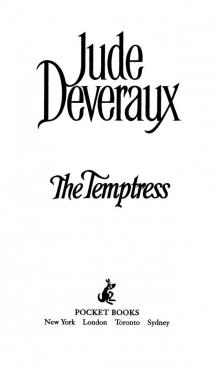 The Temptress
The Temptress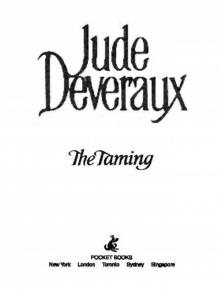 The Taming
The Taming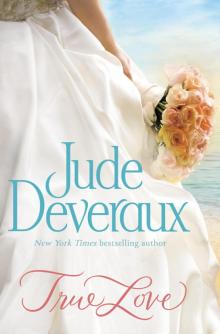 True Love
True Love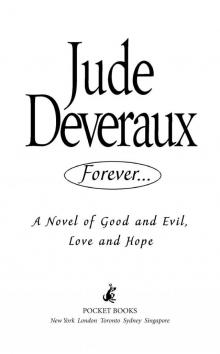 Forever...
Forever...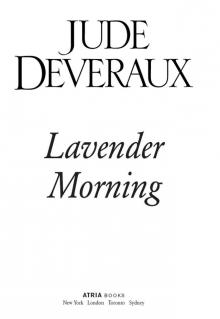 Lavender Morning
Lavender Morning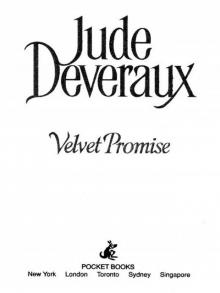 The Velvet Promise
The Velvet Promise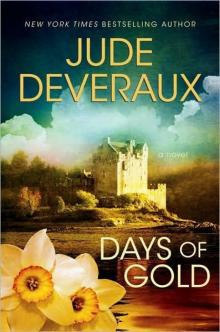 Days of Gold
Days of Gold Temptation
Temptation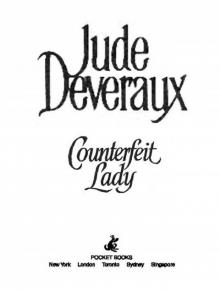 Counterfeit Lady
Counterfeit Lady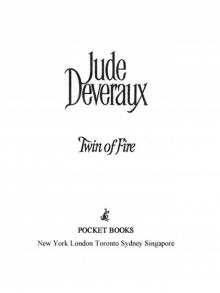 Twin of Fire
Twin of Fire Remembrance
Remembrance Velvet Angel
Velvet Angel The Enchanted Land
The Enchanted Land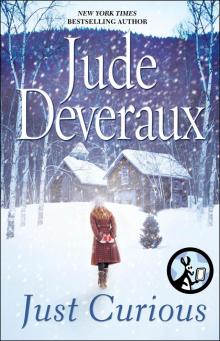 Just Curious
Just Curious Wild Orchids
Wild Orchids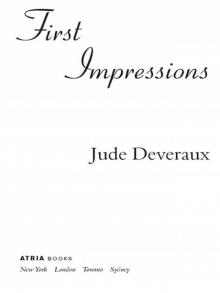 First Impressions
First Impressions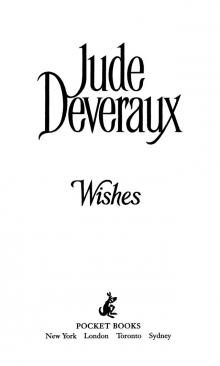 Wishes
Wishes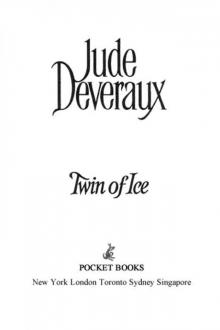 Twin of Ice
Twin of Ice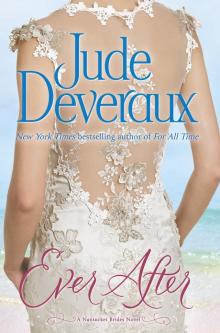 Ever After
Ever After An Angel for Emily
An Angel for Emily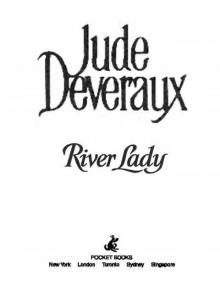 River Lady
River Lady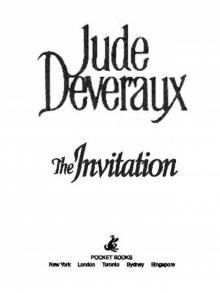 The Invitation
The Invitation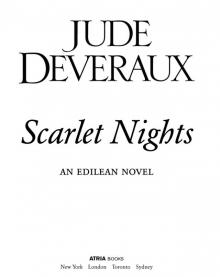 Scarlet Nights
Scarlet Nights The Black Lyon
The Black Lyon High Tide
High Tide The Girl From Summer Hill
The Girl From Summer Hill Sweetbriar
Sweetbriar As You Wish
As You Wish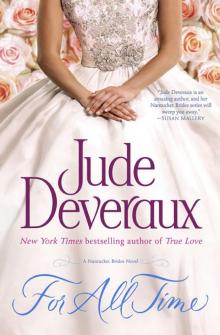 For All Time
For All Time Secrets
Secrets The Blessing
The Blessing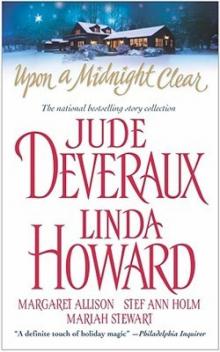 Upon a Midnight Clear
Upon a Midnight Clear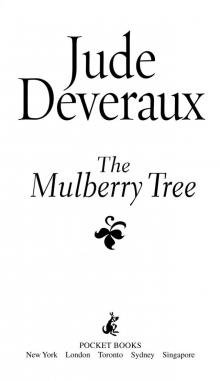 The Mulberry Tree
The Mulberry Tree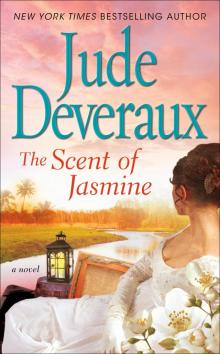 The Scent of Jasmine
The Scent of Jasmine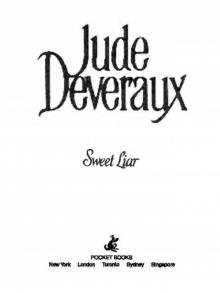 Sweet Liar
Sweet Liar Carolina Isle
Carolina Isle Holly
Holly A Knight in Shining Armor
A Knight in Shining Armor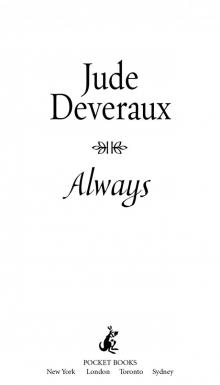 Always
Always The Duchess
The Duchess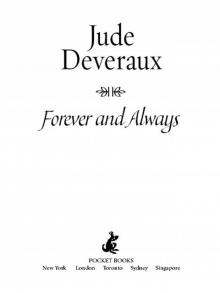 Forever and Always
Forever and Always The Raider
The Raider The Conquest
The Conquest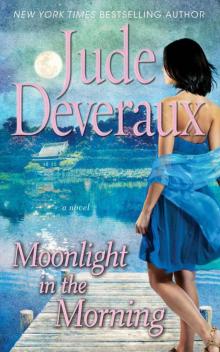 Moonlight in the Morning
Moonlight in the Morning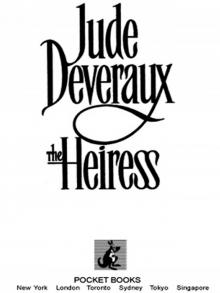 The Heiress
The Heiress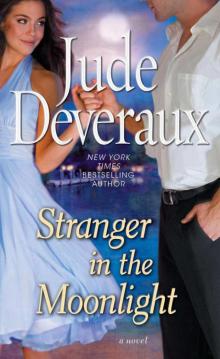 Stranger in the Moonlight
Stranger in the Moonlight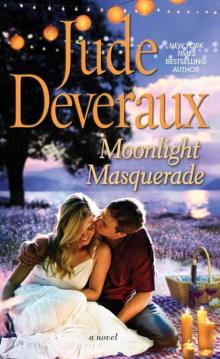 Moonlight Masquerade
Moonlight Masquerade Change of Heart
Change of Heart The Awakening
The Awakening Velvet Song
Velvet Song Someone to Love
Someone to Love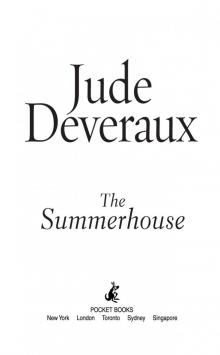 The Summerhouse
The Summerhouse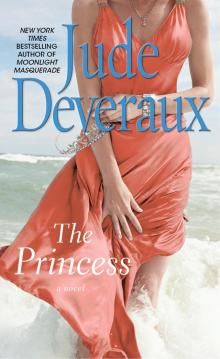 The Princess
The Princess Highland Velvet
Highland Velvet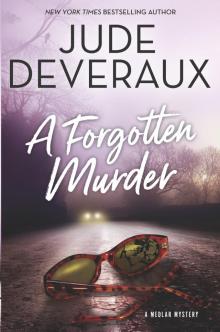 A Forgotten Murder
A Forgotten Murder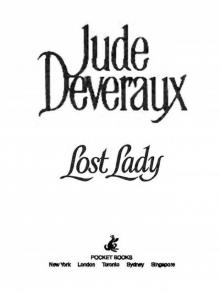 Lost Lady
Lost Lady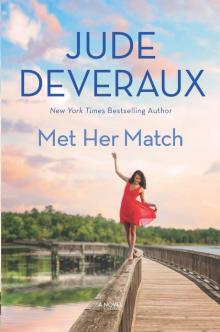 Met Her Match
Met Her Match LEGEND
LEGEND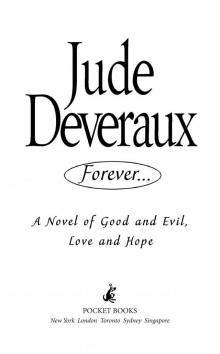 Forever: A Novel of Good and Evil, Love and Hope
Forever: A Novel of Good and Evil, Love and Hope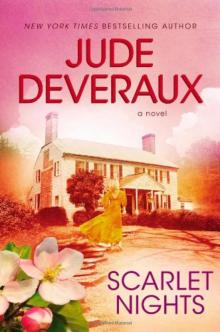 Scarlet Nights: An Edilean Novel
Scarlet Nights: An Edilean Novel